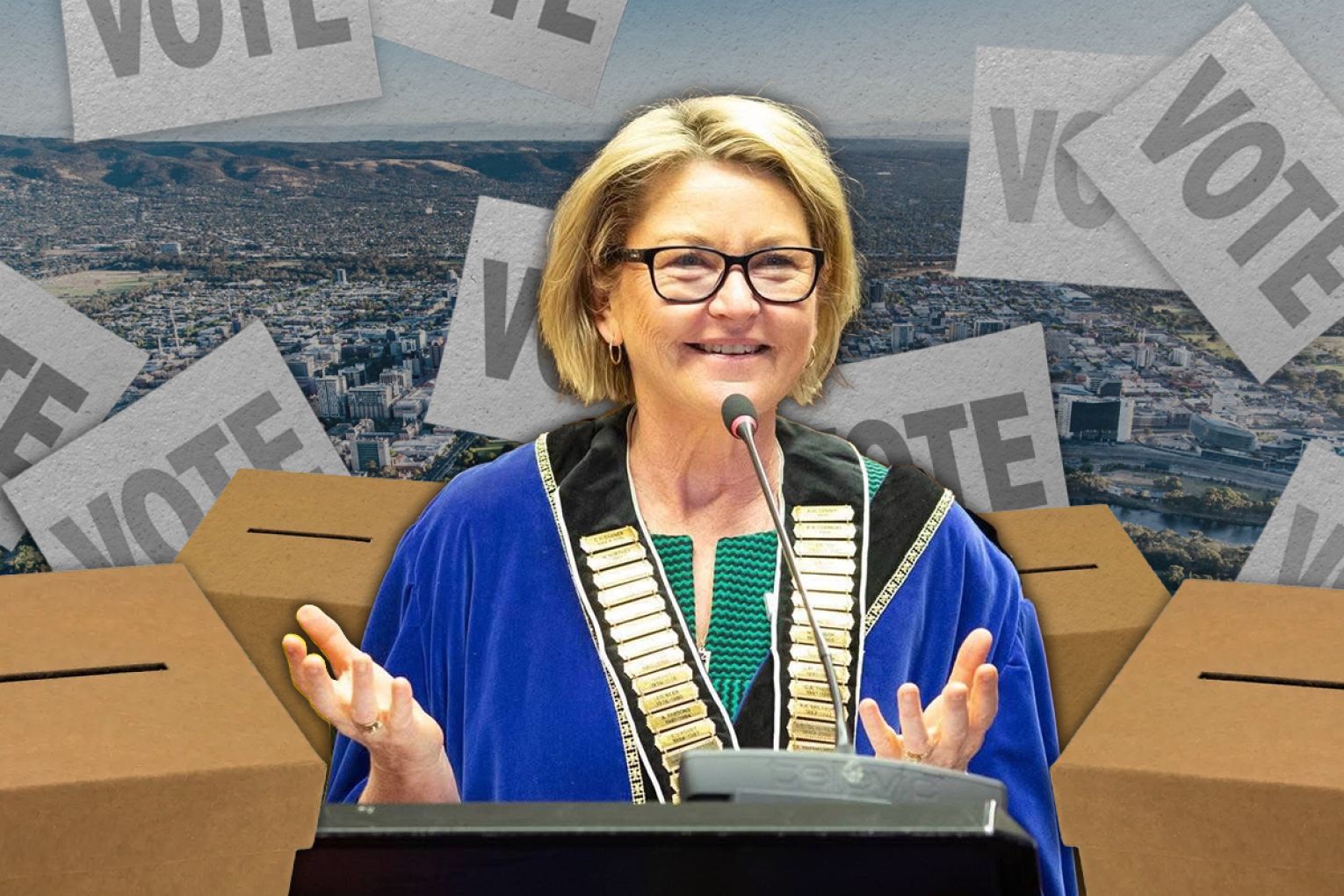Compulsory voting rally call as SA local govt faces dismal turnouts
Mayors across the state are being issued a rally call to boost figures showing around 30 per cent of South Australians voted in council elections despite it costing almost $9 million. One non-voter describes meetings as “just like a circus, so I can’t take it seriously”.

Seaside Mayor Moira Jenkins sent a letter to all 67 South Australian mayors this week calling on them to join forces to immediately tackle low voter turnouts ahead of next year’s council elections with compulsory voting topping her list.
Electoral Commission of SA (ECSA) data showed the last 2022 statewide council elections cost $8.93 million with 67 per cent of South Australians failing to register a vote.
The 2018 council election cycle cost $6.57 million and had an even lower voter turnout at 31.6 per cent. ECSA data revealed voter turnout had consistently stayed around the 33 per cent mark for the past two decades.
Victor Harbor Mayor Jenkins, who was still waiting on letter responses, called on her counterparts across the state to support reforms that would boost voter turnout, build public trust and provide better support for council members.
“What we’re asking for is a reform package that genuinely reflects the sector and community feedback,” she said.
The calls followed the state government’s reform package announced in August — which the City of Victor Harbor said falls short of addressing “more pressing” challenges.
Under the current proposal, voting eligibility requirements would follow state and federal elections meaning only Australian citizens would be able to vote from 2026.
Other proposed measures would include telephone voting for people with a disability and mandatory public meetings where council candidates can speak to voters.
You might like
While Jenkins “appreciates the government’s efforts”, she said compulsory voting would boost voter turnout and engagement in council.
“We feel that separating council election cycles from state and federal elections will reduce voter fatigue and hopefully will see voter numbers increase,” Jenkins said.
The most recent Adelaide City Council Central Ward by-election in August recorded a turnout of only 15.3 per cent of total voters, down from 24.3 per cent in the 2022 election.
One City of West Torrens resident, Mark, who didn’t share his surname, said he was among the vast majority declining to vote in council elections.
“I think it’s better to have non-compulsory voting because when there’s low voter turnout — if politicians and councillors were going to be serious about it — would start asking questions why no one was coming out to vote,” Mark said.
“If you have compulsory voting, most people will come out and be more resentful because they’re having to do something they don’t want to.”
He said local councils needed to be engaged with local citizens more often and address issues faced in local council areas.
“I’ve been to council meetings and it’s just like a circus, so I can’t take it seriously.”
Jenkins also called for additional reforms to include mandatory training standards for council members, transferrable qualifications and council member remuneration.
Currently, SA councillors and mayors are paid an annual allowance set by the Remuneration Tribunal and don’t receive superannuation or typical employee benefits, but amounts differ between councils.
Stay informed, daily
“We are looking at council member remuneration that’s proportionate to the demands of the role,” Jenkins, who was paid around $71,000 annually last financial year, said.
“If we want younger council members, the government should look at what qualifications or transferrable skills they can get during their term, whether it be TAFE training or a diploma.”
“A lot of councils struggle to attract enough candidates,” Jenkins said.
“We want to address those concerns so we can attract candidates from a wide range of ages and demographics to fill vacancies.”
Victor Harbor councillor remunerations ranged from $11,000 to $21,000, according to the council member allowance and benefits register.
Following the 2022 election cycle, 17 council positions remained vacant of the 674 positions up for election across the state where supplementary elections were held to fill vacancies.
A spokesperson for the Local Government Association said there “is always scope for further improvement,” and welcomed ongoing initiatives to boost voter turnout and candidate nominations at council.
The LGA said the Statutes Amendment (Local Government Election Review) Bill 2025 that is progressing through parliament would reintroduce real-time publication of nominations and aim to reduce vacancies at the 2026 elections.
“We welcome the Minister for Local Government’s continued focus on strengthening integrity and participation in council elections” the LGA spokesperson said.
Minister for Local Government Joe Szakacs said the reform package followed extensive consultation and survey responses from members of local government and the broader community.
“More than 90 submissions were received, and more than 400 surveys were completed,” Szakacs said.
“This feedback was crucial to forming new legislation, which is supported by the LGA.”
The LGA is leading a statewide council election marketing campaign focused on encouraging candidate nominations, including from underrepresented groups, and increasing voter participation.
The campaign is aimed to be launched following the conclusion of the 2026 state election, prior to the council election in November.








